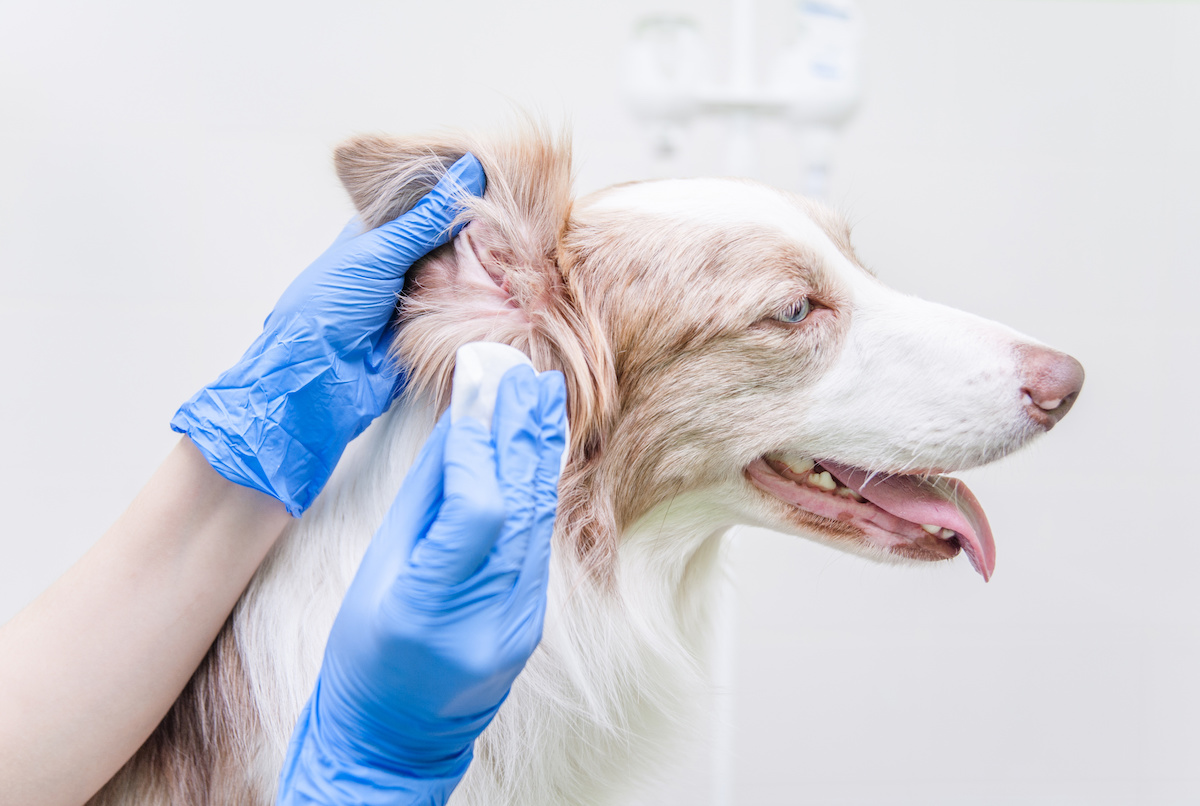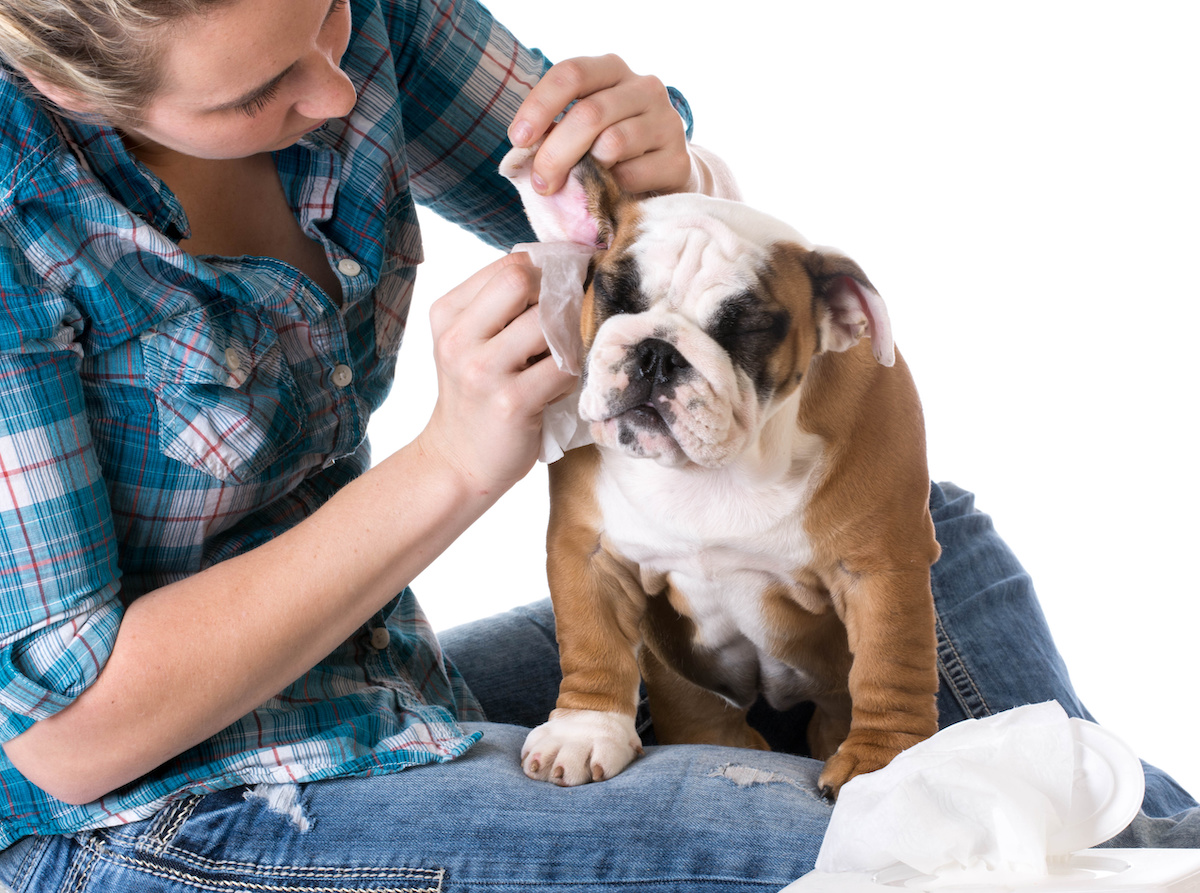Have you ever had an ear infection? Everyone knows how painful it is to have an earache. Unfortunately, dogs are not immune to ear infections. As pet owners, it’s important to be aware of the health issues that can affect our furry friends. Dog ear infections are a common condition for canines, and it’s important to recognize the signs and symptoms of this condition, as well as how to treat it.
In this guide, we’ll cover what causes ear infections in dogs, the diagnosis and treatment options, prevention and maintenance tips, and more.
What Causes Ear Infections in Dogs?
Ear infections in dogs can be caused by a number of different factors, including:
- Bacteria
- Yeast
- Allergies
- Foreign objects
- Mites.
Bacteria and yeast are the most common causes of ear infections in dogs, and they can be caused by a number of different factors. Allergies can cause inflammation in the ears, which can lead to an ear infection.
Foreign objects, such as grass awns, can also become lodged in the ear and cause an infection. Finally, mites, such as ear mites, can also lead to an infection.
In many cases, the underlying cause of an ear infection is an imbalance in the environment of the ear. This can be caused by a number of different factors, including moisture, dirt, and wax buildup. When the environment of the ear is unbalanced, it can create a breeding ground for bacteria, yeast, and other organisms.
Symptoms of Dog Ear Infections
If your dog has an earache, how can you tell? Knowing the signs can help ensure that your pup gets the treatment they need. The most common symptom of a dog ear infection is itching and scratching of the ears. This can be accompanied by a foul odor, redness, and swelling of the ear.
You might also notice a yellow, green, or brown discharge coming from the ear. In some cases, the dog may shake their head or tilt it to one side. They may also have difficulty hearing or have a loss of balance.
If your dog is exhibiting any of these symptoms, it’s important to take them to the vet as soon as possible. The longer an ear infection goes untreated, the worse it can become.
Diagnosis of Ear Infections
The first step in diagnosing a dog ear infection is to take a sample of the discharge from the ear. This can be done with a swab or by sending a sample to the lab for testing. The vet will then examine the sample to determine the cause of the infection.
The vet may also perform an otoscope examination. This involves inserting a small instrument into the ear to take a closer look at the inner ear. The vet may also take a biopsy if they suspect the infection is caused by mites.
Treatment Options: How to Treat a Dog with an Earache
You found out that your dog has an earache. Now what do you do? Once the cause of the ear infection has been determined, the vet can prescribe an appropriate treatment plan. This typically involves a combination of topical and oral medications.
Topical medications are applied directly to the ear and are used to reduce inflammation and kill bacteria or yeast. Oral medications include antibiotics and anti-fungal medications and are used to treat the underlying cause of the infection.
In some cases, the vet may also recommend cleaning the ears. This involves using a mild solution to flush out the debris and bacteria from the ear. It’s important to follow the instructions from the vet carefully when cleaning the ears to avoid further irritation.
Will a Dog’s Earache Go Away on its Own?
It’s important to understand that a dog’s earache will likely not go away on its own. Intervention is necessary to help reduce pain and clear up the infection. This is why it’s important to reach out ot a veterinarian who can properly diagnose the condition and prescribe medication as needed.
Home Remedies for Dog Ear Infections
In addition to prescription medications, there are a few home remedies that can be used to treat dog ear infections. One of the most common is to use a solution of vinegar and water. This can help to reduce inflammation and ease the itching and discomfort associated with the infection.
Another home remedy is to use a mix of warm water and hydrogen peroxide. This can help to flush out the debris and bacteria from the ear. It’s important to use a solution that is specifically formulated for dogs, as human solutions can be too harsh for their delicate ears.
Finally, some pet owners have found success using coconut oil in the ears. It can help to soothe the itching and reduce inflammation. However, it’s important to speak to your vet before trying any home remedies. As a friendly reminder, you need to take your pup to the vet for proper treatment.

Prevention & Maintenance Tips for Dog Ear Infections
The best way to prevent ear infections in dogs is to keep the ears clean and dry. It’s important to regularly inspect the ears for signs of infection, such as redness, swelling, or a foul odor. If you notice any of these symptoms, it’s important to take your dog to the vet for a proper diagnosis and treatment.
It’s also important to keep the ears free from debris and wax buildup. This can be done by gently cleaning the ears with a cotton ball and a mild solution. It’s important to never use a cotton swab, as this can push the debris further into the ear. Cleaning the ears is the most preventative approach to avoiding infection.
Finally, it’s important to avoid exposing the ears to water. This is especially important if your dog has a history of ear infections. If your dog does get wet, make sure to dry their ears thoroughly with a towel.
When to See a Veterinarian
It’s important to seek veterinary care if you suspect that your dog has an ear infection. The earlier a diagnosis is made, the better the outcome will be. Left untreated, ear infections can cause damage to the inner ear and lead to hearing loss.
At Animal Care Center, our experienced veterinarians are well-equipped to diagnose and treat ear infections in dogs. We offer a comprehensive range of treatments, from topical medications to ear cleaning, to ensure that your pet gets the best possible care. Contact us today if you have concerns that your dog has an ear infection.
Get Help with Dog Ear Infections from Animal Care Center
Dog ear infections can be a serious issue for our furry friends. It’s important to be aware of the signs and symptoms of this condition, as well as how to treat and prevent it. By following the tips in this guide, you can help keep your pet’s ears healthy and free from infection. However, if you have any concerns, it’s important to contact your veterinarian right away. With the right treatment and care, your dog can enjoy a healthy and happy life.






